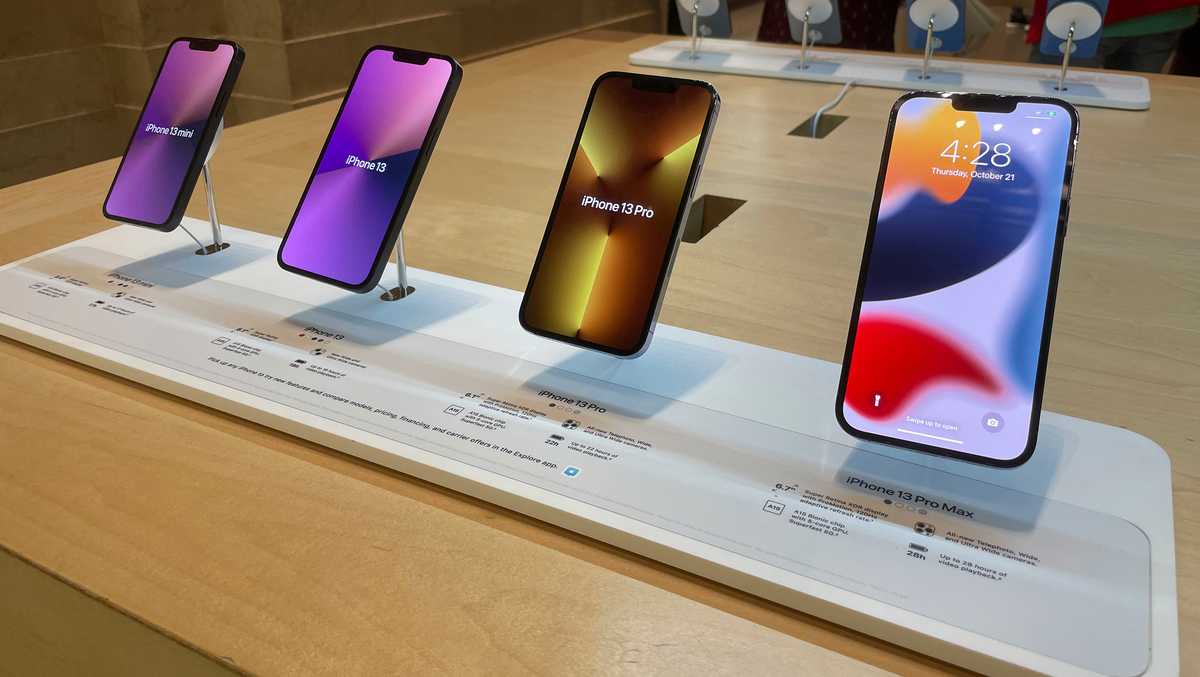The global chip shortage is making it harder for shoppers to get their hands on some of the most sought after tech gadgets of the holiday season.
In the six weeks leading up to Christmas, some of Apple’s biggest new products — including certain iPhone 13 models, some newer iPads and AirPods — are experiencing delays well into December, depending on model type, colors and the shopper’s location, according to analysts and online checks conducted by CNN Business.
Last week, some Google Pixel 6 Pro devices were showing late January shipment dates for orders; by Monday, certain models were listed as out of stock on its website. Gaming consoles such as Xbox and PS5 are nearly impossible to find due to delays stemming from COVID-related production challenges and the large gap between supply and demand.
The wait times for popular tech products are always changing, but the challenge for shoppers is clear. “Right now, iPhone 13 and gaming consoles are seeing demand outstrip supply by roughly 20%, which is a telling [sign] for Black Friday and holiday shopping stress,” Wedbush analyst Dan Ives told CNN Business. “We have also seen the new AirPods 3 already on back order with shortages into Christmas [week].”
The chip shortage, which also has had a major impact on the auto industry, also presents a massive challenge for tech products. For customers, it could require rethinking how early to shop and which specs and products they’re willing to live without. For companies, it risks hurting revenue for the all-important holiday sales season and cutting into the sales momentum for some of their recently launched products.
Take Apple, which is known for having a sophisticated global supply chain to make its products. The iPhone 13, introduced in September, runs on Apple’s own A15 Bionic chip, which drives some of its new flagship camera features and an improved battery life. But it also relies on other companies for chips that power certain features, such as displays, power management and USB connectivity.
In late October, Apple said chip shortages and manufacturing disruptions tied to COVID-19 slashed $6 billion off its revenue last quarter. It’s also reportedly reallocating some of the chips originally planned for iPads to the iPhone to help meet demand. But this means wait times for iPads could get longer.
Tech companies such as Samsung and Microsoft have cited supply chain constraints on recent earnings calls. Some chipmakers have warned that demand will outpace supply through at least 2022.
“We are seeing shortages across the board but the premium devices — which require more chips for power management solutions, micro-controls and certain features — will be especially hard to find,” said Gaurav Gupta, a vice president focusing on the semiconductor industry at market research firm Gartner.
As of last week, for example, iPhone 13 and iPhone mini models were shipping at faster rates than their Pro counterparts.
Apple and Microsoft did not respond to a request for comment. Representatives for Google, Nintendo and Sony also did not respond to requests for comment.
Meanwhile, finding one of the newer gaming consoles — such as NIntendo Switch OLED, PS5 and XBox Series — is even harder. All these products are out of stock on their company websites. On Sony’s website, shoppers can register “for an opportunity to purchase” a PS5 via a special invitation. Some retailers such as Walmart and Best Buy are offering access to “restock events” for paying members of their subscription clubs. Amazon, which hasn’t been charging for early access to gaming consoles, lets shoppers sign up for text messages when they come back in stock — before quickly selling out again.
Filomena Iovino, research nalyst at technology intelligence firm ABI Research, said shoppers may have better luck getting certain products depending on where they live.
“Geographically, Apple knows its strongest markets for iPhone sales, and these will be the ones prioritized to receive new product shipments,” Iovino said. “This may result in a lack of availability, or delayed availability, in lower-tier markets, but should not impact price.”
As a general rule, however, customers everywhere should be prepared to shop early and be flexible.
“If someone wants a tech gadget to give for the holidays, buy it now,” Gupta added. “Some items might ship in December; some might get extended to January, depending on the product. The more you customize it, the more difficult it will become to buy that gadget.”

